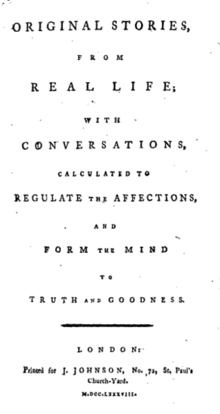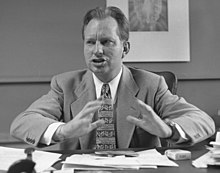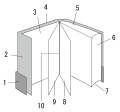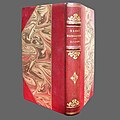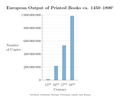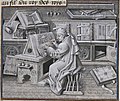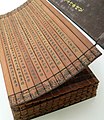
Back بوابة:كتب Arabic প্রবেশদ্বার:বই Bengali/Bangla دەروازە:کتێب CKB درگاه:کتاب Persian Portal:書物 Japanese ද්වාරය:පොත් Singhalese Портал:Книги Ukrainian Portal:書籍 Chinese
The Books Portal
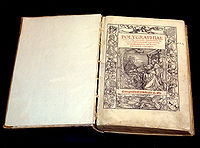
| Literature | ||||||
|---|---|---|---|---|---|---|
 | ||||||
| Oral literature | ||||||
| Major written forms | ||||||
|
||||||
| Prose genres | ||||||
|
||||||
| Poetry genres | ||||||
|
||||||
| Dramatic genres | ||||||
| History | ||||||
| Lists and outlines | ||||||
| Theory and criticism | ||||||
|
| ||||||
As a conceptual object, a book refers to a written work of substantial length, which may be distributed either physically or digitally as an ebook. These works can be broadly classified into fiction (containing invented content, often narratives) and non-fiction (containing content intended as factual truth). A physical book may not contain such a work: for example, it may contain only drawings, engravings, photographs, puzzles, or removable content like paper dolls. It may also be left empty for personal use, as in the case of account books, appointment books, autograph books, notebooks, diaries and sketchbooks.
Books are sold at both regular stores and specialized bookstores, as well as online for delivery, and can be borrowed from libraries. The reception of books has led to a number of social consequences, including censorship.
The modern book industry has seen several major changes due to new technologies, including ebooks and audiobooks (recordings of books being read aloud). Awareness of the needs of print-disabled people has led to a rise in formats designed for greater accessibility, such as braille printing and large-print editions. Google Books estimated in 2010 that approximately 130 million total unique books had been published. (Full article...)
Featured articles -
Selected picture

Credit: Anne de Felbrigge
More Did you know (auto generated)

- ... that journalist Jacques Poitras spent a month repeatedly crossing the "Imaginary Line" separating New Brunswick and Maine in order to publish a book about it?
- ... that in a recent book, David Bentley Hart – a New Testament translator and proponent of the existence of fairies – engages in dialogues with his dog Roland?
- ... that illustrator Rudy Nappi based his cover art for the Nancy Drew Mystery Stories on summaries provided by his wife, who actually read the books?
- ... that the 1748 chapbook A Spy on Mother Midnight is studied for its sex scenes with cross-dressing and a dildo?
- ... that the author of the comic book Timeless Voyage was the leader of a UFO religion?
- ... that the book Dracul makes use of the unpublished first 100 pages of Bram Stoker's Dracula manuscript?
Books topics
Related portals
Selected quote
| “ | A truly great book should be read in youth, again in maturity and once more in old age, as a fine building should be seen by morning light, at noon and by moonlight. | ” |
| — Robertson Davies | ||
Did you know
- ...that the Arabic translation of Borunsi sold one million copies in its first year of publication?
- ...that Albert Pick wrote the first modern catalog of banknotes in 1974 ?
General images
Books lists
WikiProjects
Categories
Things you can do

- Find news articles regarding notable books and add them to the "In the news" section.
- Expand this portal and book-related articles: List of Jamaican books
- Create new articles: Lists of books provides a comprehensive list of notable books, many of which have no articles.
- Add references: List of CEO books, List of anonymously published works
- Make this portal more complete:
- Add {{WPBooks}} to the Talk pages of articles about notable books – but try to add an initial Assessment from the Wikipedia:WikiProject_Books
- Add
{{Portal|Books}}to appropriate articles within the subject
- Anything else you can think of doing.
Web resources
- Bookbinding and the Conservation of books, A Dictionary of Descriptive Terminology, 1982 by Matt T. Roberts and Don Etherington
- IOBA glossary of book terms
- Project Gutenberg - Free e-Books
- Words at Large: The best in books from CBC.ca
- please add more!
Associated Wikimedia
The following Wikimedia Foundation sister projects provide more on this subject:
-
Commons
Free media repository -
Wikibooks
Free textbooks and manuals -
Wikidata
Free knowledge base -
Wikinews
Free-content news -
Wikiquote
Collection of quotations -
Wikisource
Free-content library -
Wikispecies
Directory of species -
Wikiversity
Free learning tools -
Wikivoyage
Free travel guide -
Wiktionary
Dictionary and thesaurus


